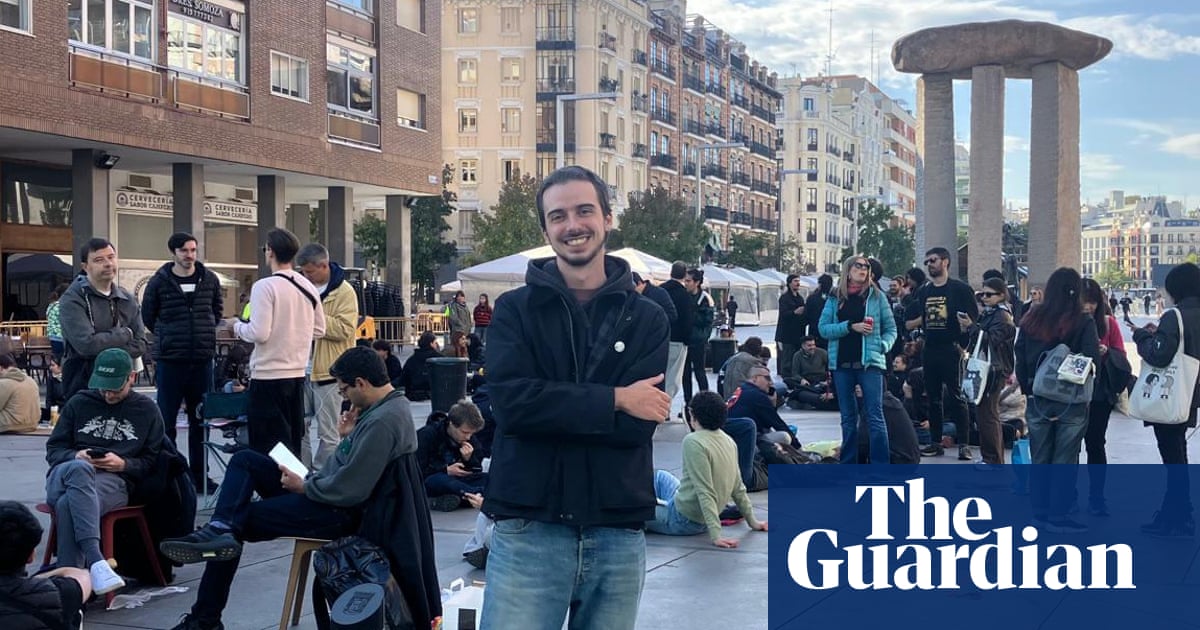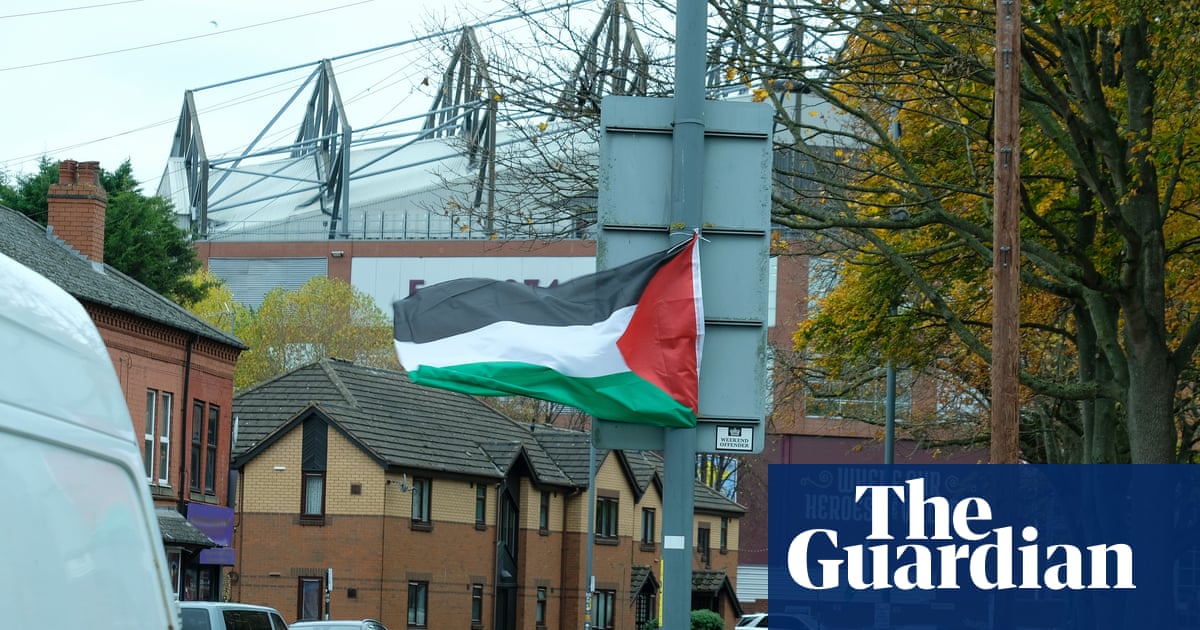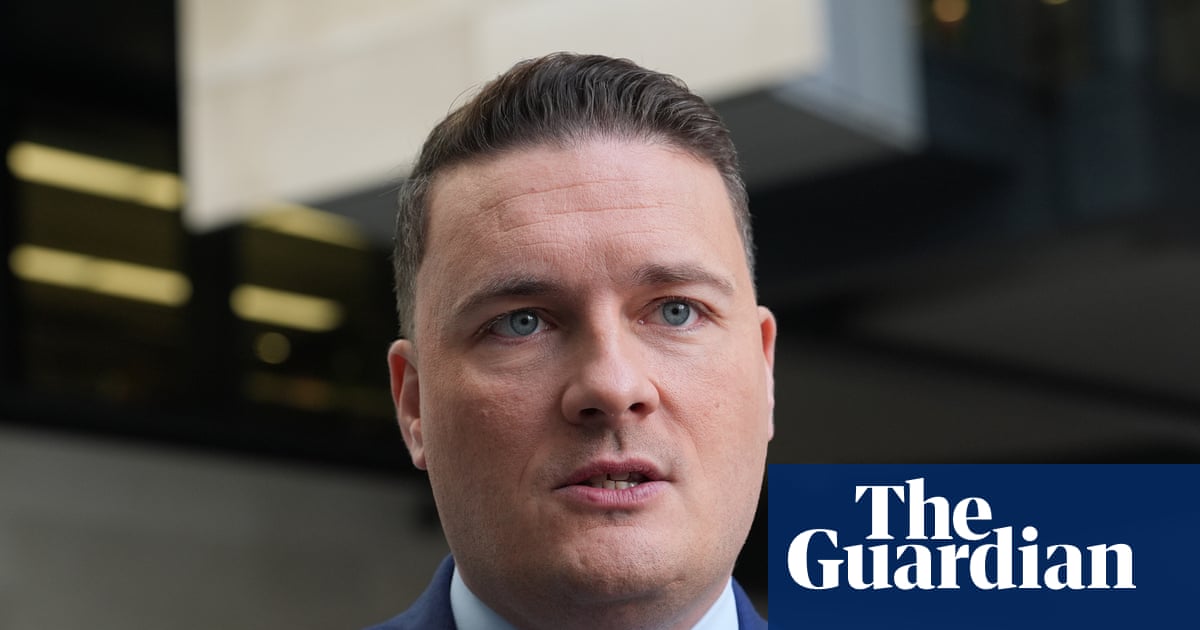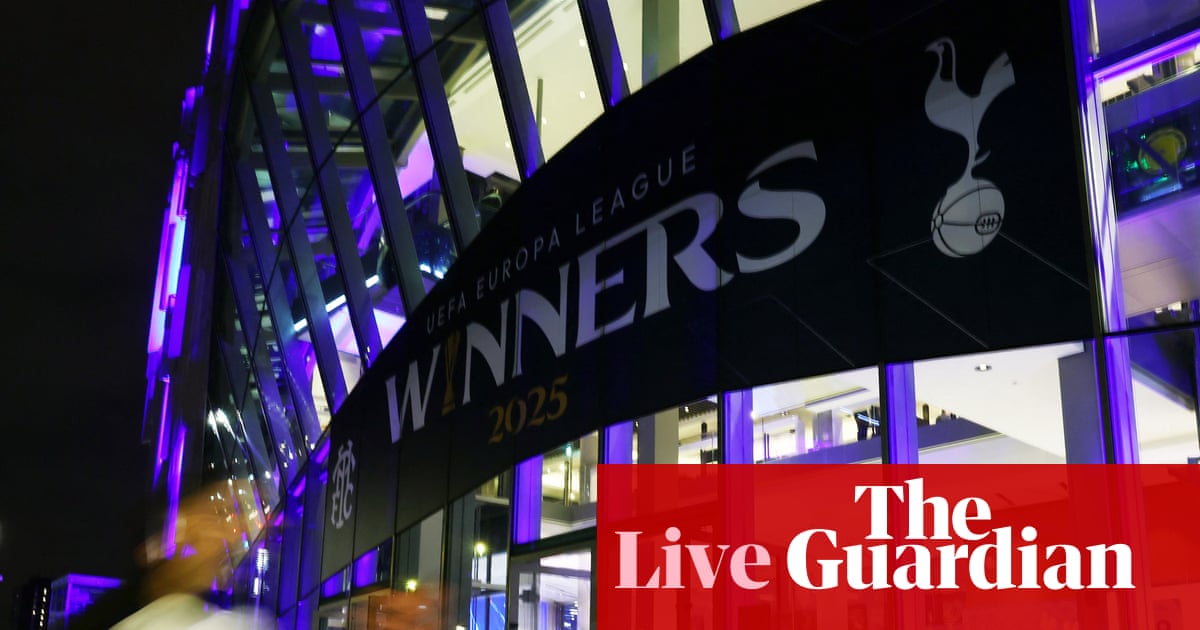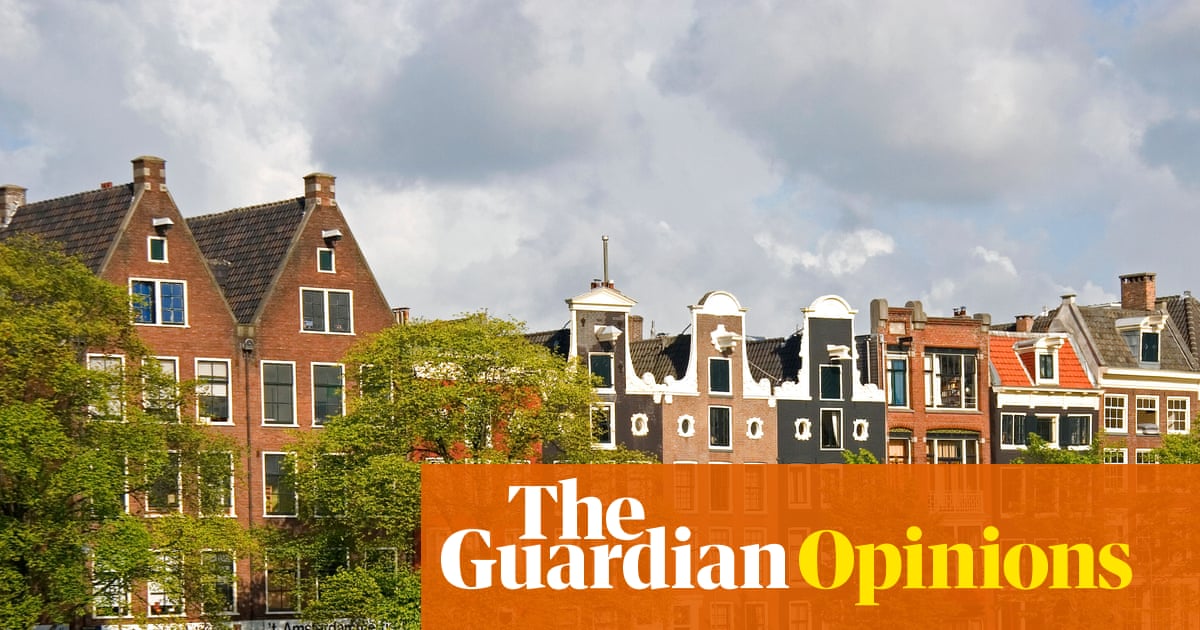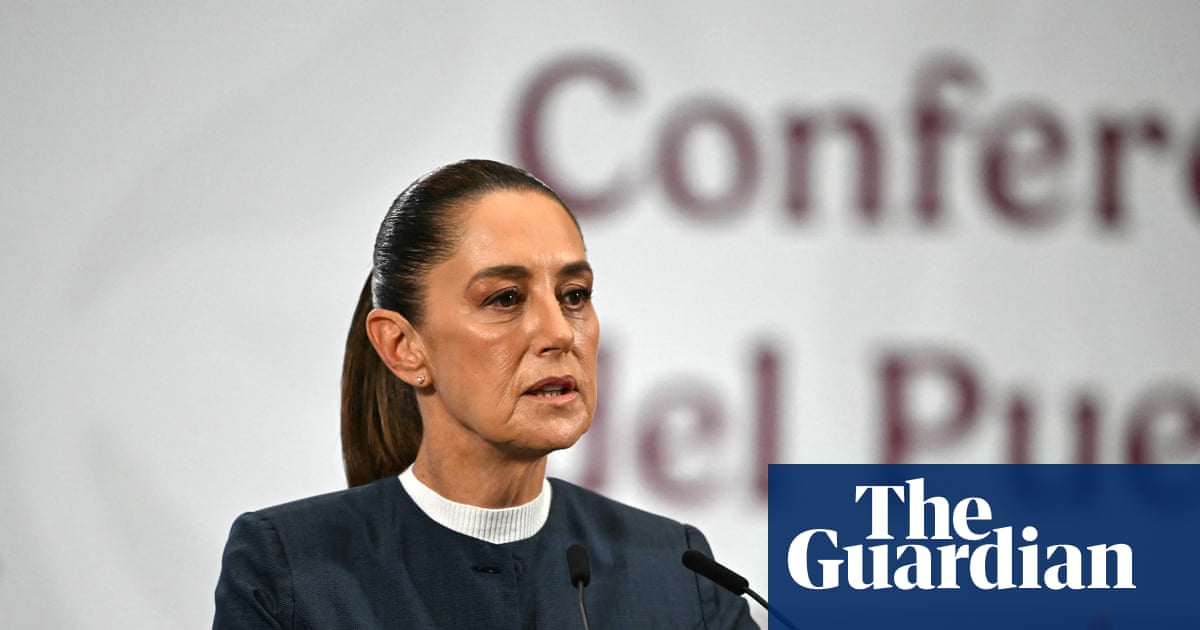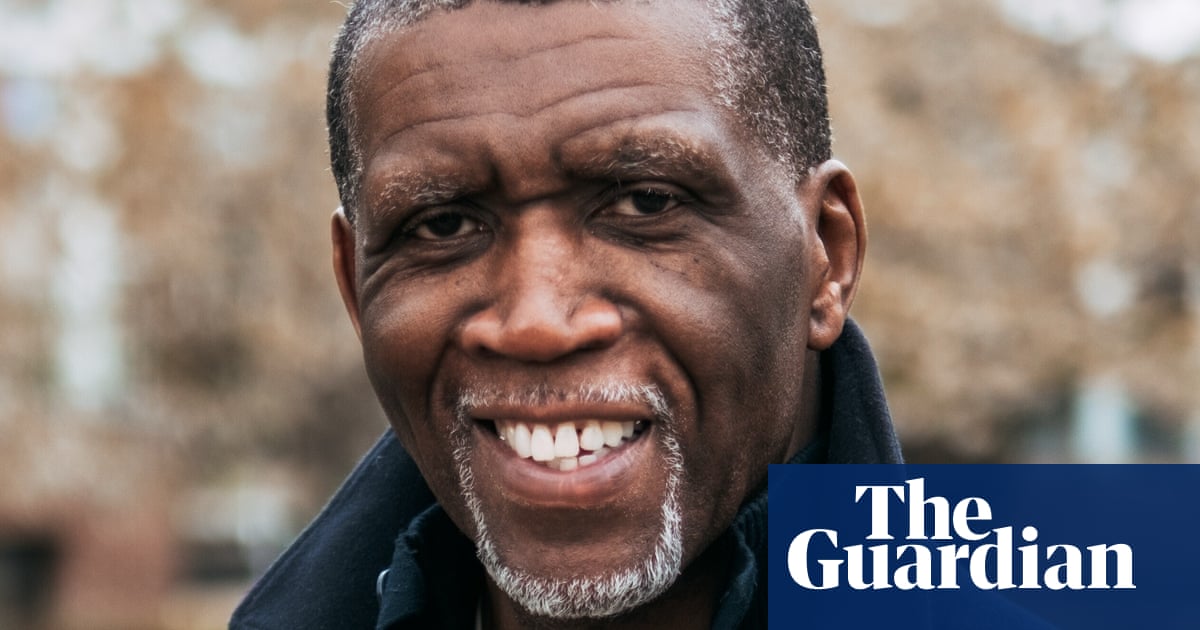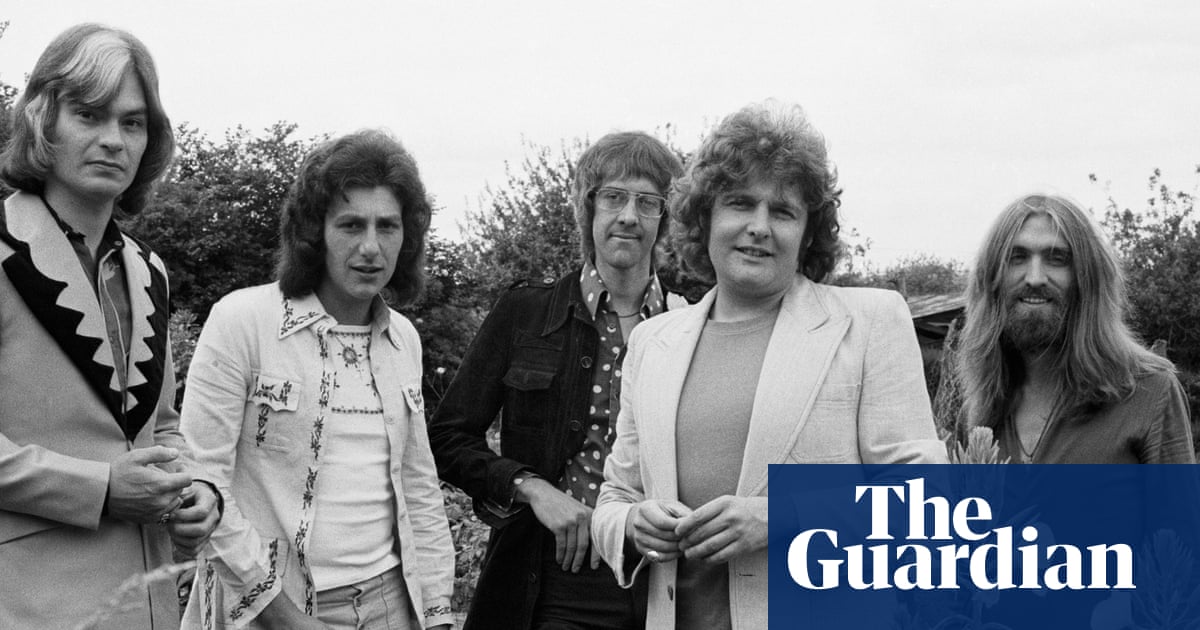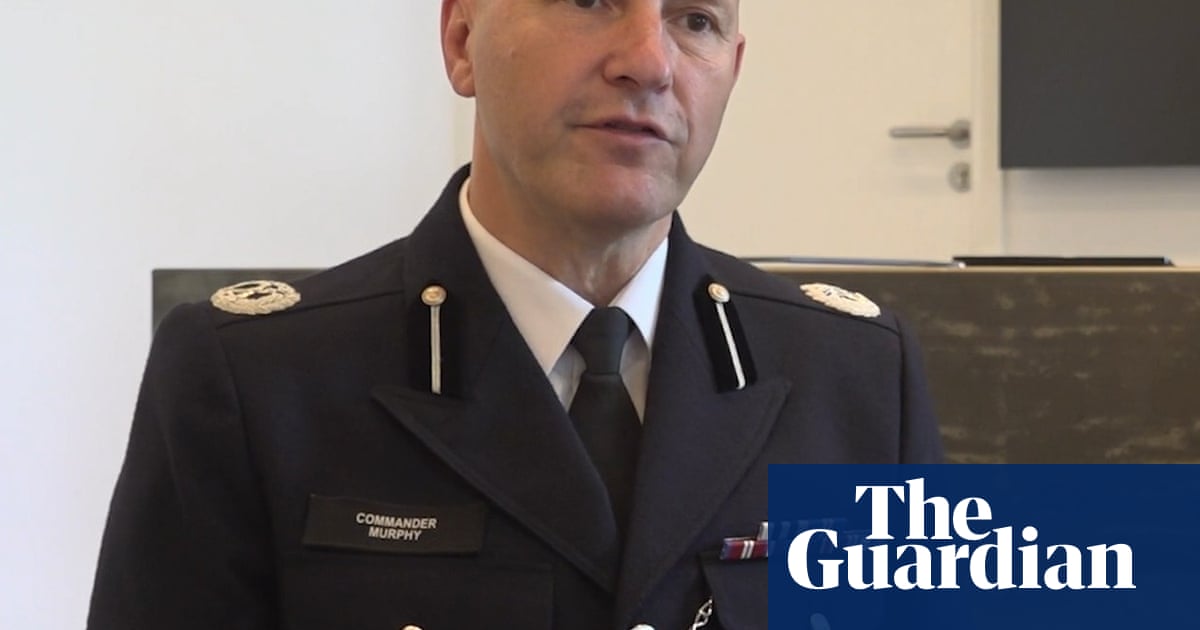Amid discussion of his leadership from some Labour MPs, PM calls on party to abandon introspection and deliver change
LIVE Updated now
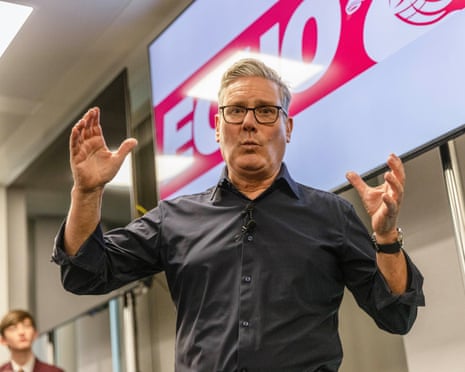
Keir Starmer in Liverpool on Saturday for the Labour party conference. Photograph: Getty Images
Show key events only Please turn on JavaScript to use this feature
Live feed
Starmer calls on Labour to to stop ‘navel-gazing’ and join ‘fight of our times’ as Labour conference begins
Good morning. The Labour party’s four-day annual conference starts this morning in Liverpool and the headline on the Sunday Times splash sums up the challenge facing Keir Starmer: can he pull things round?
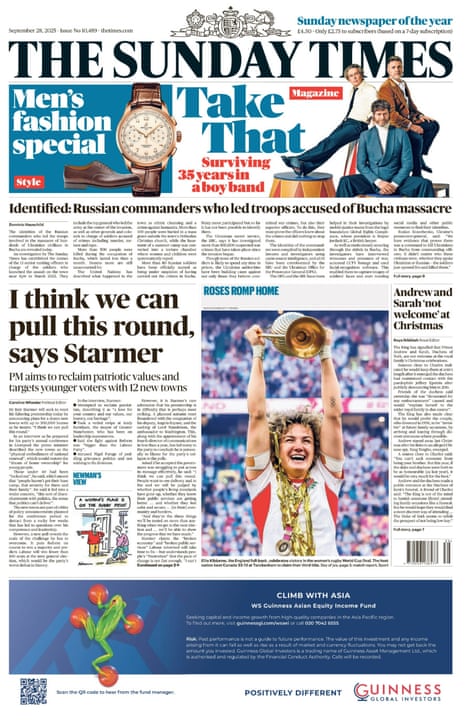
In party politics terms, what that means is: can Labour recover its lead in the polls? At least, can it do that in time for the next general election? And, in practice that means, can Labour see of the threat from Reform UK. “I think we can pull this round,” Starmer told the Sunday Times, in an interview with its political editor, Caroline Wheeler.
The next four days won’t settle this question. Sometimes political parties get a modest boost in the polls after their party conference, but Labour are about 10 points behind Reform in polls at the moment and no one is expecting them to close that gap this week. But Labour members will be looking for evidence that that party is on the right track. In particular, there are three problems Starmer needs to address. First, he is accused of being a lousy communicator. Will we see any evidence that he is raising his game? Second, he is accused of being not even sure what he wants to communicate in the first place. Commentators, and even some Labour MPs, say they are not clear about the government’s guiding mission. Will we get clarity on that? And, third, voters want clear evidence that Labour is bringing about meaningful change. Will we get policy that ticks that box?
Over the last few weeks some Labour MPs have been talking privately about the benefits of getting a new leader. In his Sunday Times interview, Starmer said the party had to abandon this sort of “navel-gazing”. He said:
It is the fight of our times and we’ve all got to be in it together. We don’t have time for introspection, we don’t have time for navel-gazing. You’ll always get a bit of that at a Labour party conference, but that is not going to solve the problems that face this country.
Once you appreciate the change — in the sense of the division that Reform would bring to our country and the shattering of what we are as a patriotic country — then you realise this is a fight which in the end is bigger than the Labour party.
Here is the agenda for the day.
8.30am: Steve Reed, the housing secretary, and Sharon Graham, the Unite general secretary, are interviewed on Sky’s Sunday Morning with Trevor Phillips.
9am: Keir Starmer is interviewed on the BBC’s Sunday with Laura Kuenssberg. Other guests include Alan Johnson, a former Labour home secretary, Gary Smith, general secretary of the GMB union, and Labour MP Bell Ribeiro-Addy.
11am: The conference opens.
11.40am: Hollie Ridley, Labour’s general secretary, speaks. In a session on party business, Ellie Reeves, the national policy forum chair, Anna Turley, the Labour chair, and Bev Craig, leader of Manchester city council and leader of the Labour group on the LGA (Local Government Association) also speak.
12.35pm: Steve Reed, the housing secretary, speaks.
2.05pm: Anthony Albanese, the Australian PM and leader of the Australian Labor party, speaks.
2.30pm: Douglas Alexander, the Scottish secretary, speaks.
2.30pm: Peter Kyle, the business secretary, takes part in a Social Market Foundation Q&A at a fringe meeting.
2.45pm: Anas Sarwar, the Scottish Labour leader, speaks to the conference.
3pm: Jo Stevens, the Welsh secretary, speaks.
3.15pm: Eluned Morgan, the Welsh first minister, speaks.
4pm: Emma Reynolds, the environment secretary speaks at a fringe meeting.
4.30pm: David Lammy, the deputy PM, takes part in a Financial Times Q&A at a fringe meeting.
5pm: Ed Miliband, the energy secretary, takes part in an LCEF (Labour Climate and Environment Forum) Q&A at a fringe meeting.
If you want to contact me, please post a message below the line when comments are open (normally between 10am and 3pm BST at the moment), or message me on social media. I can’t read all the messages BTL, but if you put “Andrew” in a message aimed at me, I am more likely to see it because I search for posts containing that word.
If you want to flag something up urgently, it is best to use social media. You can reach me on Bluesky at @andrewsparrowgdn.bsky.social. The Guardian has given up posting from its official accounts on X, but individual Guardian journalists are there, I still have my account, and if you message me there at @AndrewSparrow, I will see it and respond if necessary.
I find it very helpful when readers point out mistakes, even minor typos. No error is too small to correct. And I find your questions very interesting too. I can’t promise to reply to them all, but I will try to reply to as many as I can, either BTL or sometimes in the blog.
Key events Show key events only Please turn on JavaScript to use this feature
Shabana Mahmood says migrants who want indefinite leave to remain should have to be contributing to communities
Although the Sunday Times got an interview with Keir Starmer, there was more news in the Sun on Sunday’s interview with Shabana Mahmood. Here are the main lines. Mahmood was speaking to the paper’s political editor, Kate Ferguson.
-
Mahmood said that she wanted to impose new conditions on migrants who want indefinite leave to remain (ILR) in the UK, requiring them to show that they are making a contribution to communities. She told the paper:
I am looking at how to make sure that settlement in our country - long term settlement, indefinite leave to remain - is linked not just to the job you are doing, the salary you get, the taxes you pay, [but] also the wider contribution you are making to our communities.
She said she was inspired by the example of her parents, who came to Birminghan fom Kashmir in the 1960s and 1970s. She said:
They didn’t just come to work - they settled, they made a contribution to the local community, they were volunteers, they got involved in local politics. They did more than simply work and earn a salary.
Last week Reform UK announced that it wants to abolish the ILR status altogether. Mahmood is not proposing that.
But the government has already said it wants to extend the amount of time migrants normally have to wait until they can apply for ILR, from five years to 10 years. And, in some respects, Mahmood’s proposals in the Sun in Sunday echo the plans announced by Kemi Badenoch earlier this year. Badenoch also said people should have to wait 10 years before they can claim ILR, and she said it should only be given to people who are net contributors to the state, and that people who have claimed benefits should not qualify.
As Patrick Maguire reported in the Times last week, in Labour circles “contribution” is now fashionable as an idea that could be applied to public service reform. Mahmood’s interview reflects this thinking.
-
Mahmood said that the European convention on human rights and refugee conventions were being “used in a way that was never intended” and said she would propose reforms before Christmas. The Home Office is working on new guidance to the courts on how they should interprete two of the articles in the convention.
-
Mahmood said the policy of putting migrants in hotels had been a “total disaster for the country”.
-
She said her “jaw hit the floor” when she learned last week about the Home Office spending £600 on a taxi journey for a migrant with a GP appointment a long way from the hotel where they were staying. She ordered a review after a BBC investigation highlighted this.
-
She suggested that some of those who have been putting up St George’s flags or union jack flags around the country have the wrong motives. Asked about flags, she said:
I love the St George’s flag and I love the Union Jack. They are flags that I see myself reflected in.And where our flags are being used as a symbol of unity I’m all for it. I would like to see more of our flags actually on our civic institutions …
I think the thing that we have to be careful about is the motives of some - not all - but some of the people that are putting up the flags. They are speaking to nationalism. And I’m a patriot, not a nationalist.
In my vision of patriotism, you can be English in this country and have 1,000 years of history here, or you can be English and look like me. And no one, not Tommy Robinson or anybody else can take my English identity away from me.
Mahmood was referring to concerns that some of those who have been putting up flags are anti-migrant, or racist.
Other ministers asked about flags have declined to accept there is anything negative about the flag-flying trend.
-
Mahmood said that Margaret Thatcher was one of her political heroes. In a quickfire question round, asked to name her heroes, Mahmood said:
I have two women who I look up to for their strength and their steel, and that’s Benazir Bhutto and Margaret Thatcher.
Mahmood probably won’t be using this line in her speech to the conference.
Starmer calls on Labour to to stop ‘navel-gazing’ and join ‘fight of our times’ as Labour conference begins
Good morning. The Labour party’s four-day annual conference starts this morning in Liverpool and the headline on the Sunday Times splash sums up the challenge facing Keir Starmer: can he pull things round?

In party politics terms, what that means is: can Labour recover its lead in the polls? At least, can it do that in time for the next general election? And, in practice that means, can Labour see of the threat from Reform UK. “I think we can pull this round,” Starmer told the Sunday Times, in an interview with its political editor, Caroline Wheeler.
The next four days won’t settle this question. Sometimes political parties get a modest boost in the polls after their party conference, but Labour are about 10 points behind Reform in polls at the moment and no one is expecting them to close that gap this week. But Labour members will be looking for evidence that that party is on the right track. In particular, there are three problems Starmer needs to address. First, he is accused of being a lousy communicator. Will we see any evidence that he is raising his game? Second, he is accused of being not even sure what he wants to communicate in the first place. Commentators, and even some Labour MPs, say they are not clear about the government’s guiding mission. Will we get clarity on that? And, third, voters want clear evidence that Labour is bringing about meaningful change. Will we get policy that ticks that box?
Over the last few weeks some Labour MPs have been talking privately about the benefits of getting a new leader. In his Sunday Times interview, Starmer said the party had to abandon this sort of “navel-gazing”. He said:
It is the fight of our times and we’ve all got to be in it together. We don’t have time for introspection, we don’t have time for navel-gazing. You’ll always get a bit of that at a Labour party conference, but that is not going to solve the problems that face this country.
Once you appreciate the change — in the sense of the division that Reform would bring to our country and the shattering of what we are as a patriotic country — then you realise this is a fight which in the end is bigger than the Labour party.
Here is the agenda for the day.
8.30am: Steve Reed, the housing secretary, and Sharon Graham, the Unite general secretary, are interviewed on Sky’s Sunday Morning with Trevor Phillips.
9am: Keir Starmer is interviewed on the BBC’s Sunday with Laura Kuenssberg. Other guests include Alan Johnson, a former Labour home secretary, Gary Smith, general secretary of the GMB union, and Labour MP Bell Ribeiro-Addy.
11am: The conference opens.
11.40am: Hollie Ridley, Labour’s general secretary, speaks. In a session on party business, Ellie Reeves, the national policy forum chair, Anna Turley, the Labour chair, and Bev Craig, leader of Manchester city council and leader of the Labour group on the LGA (Local Government Association) also speak.
12.35pm: Steve Reed, the housing secretary, speaks.
2.05pm: Anthony Albanese, the Australian PM and leader of the Australian Labor party, speaks.
2.30pm: Douglas Alexander, the Scottish secretary, speaks.
2.30pm: Peter Kyle, the business secretary, takes part in a Social Market Foundation Q&A at a fringe meeting.
2.45pm: Anas Sarwar, the Scottish Labour leader, speaks to the conference.
3pm: Jo Stevens, the Welsh secretary, speaks.
3.15pm: Eluned Morgan, the Welsh first minister, speaks.
4pm: Emma Reynolds, the environment secretary speaks at a fringe meeting.
4.30pm: David Lammy, the deputy PM, takes part in a Financial Times Q&A at a fringe meeting.
5pm: Ed Miliband, the energy secretary, takes part in an LCEF (Labour Climate and Environment Forum) Q&A at a fringe meeting.
If you want to contact me, please post a message below the line when comments are open (normally between 10am and 3pm BST at the moment), or message me on social media. I can’t read all the messages BTL, but if you put “Andrew” in a message aimed at me, I am more likely to see it because I search for posts containing that word.
If you want to flag something up urgently, it is best to use social media. You can reach me on Bluesky at @andrewsparrowgdn.bsky.social. The Guardian has given up posting from its official accounts on X, but individual Guardian journalists are there, I still have my account, and if you message me there at @AndrewSparrow, I will see it and respond if necessary.
I find it very helpful when readers point out mistakes, even minor typos. No error is too small to correct. And I find your questions very interesting too. I can’t promise to reply to them all, but I will try to reply to as many as I can, either BTL or sometimes in the blog.
Explore more on these topics

.png) 1 month ago
34
1 month ago
34




